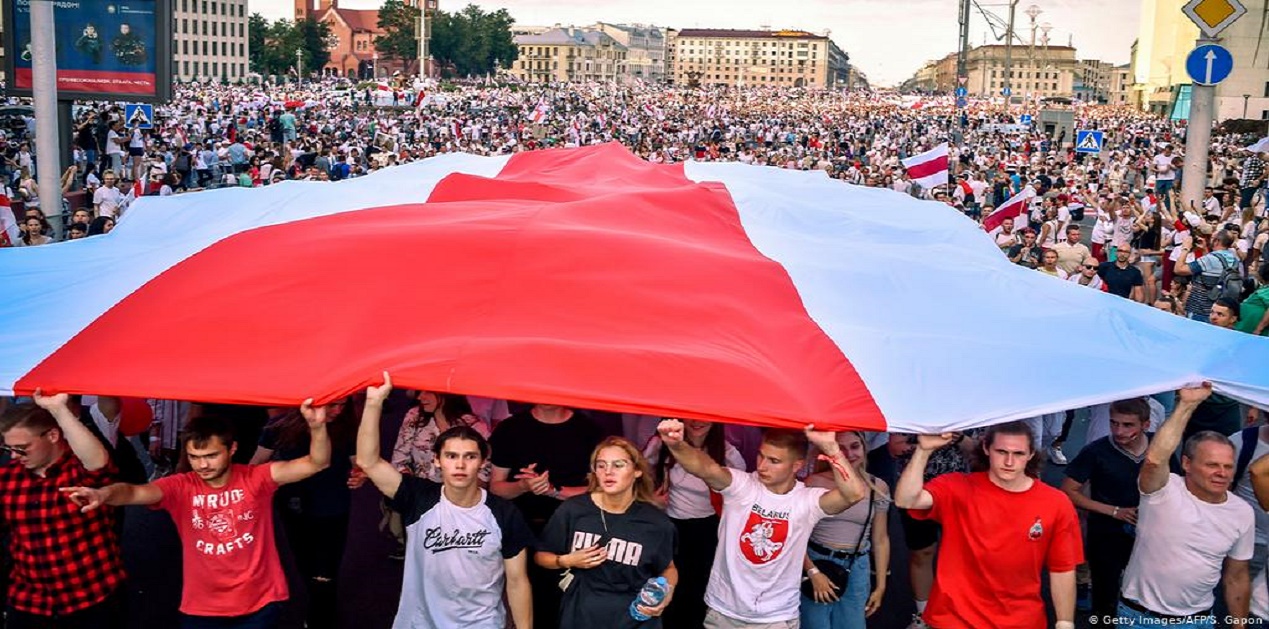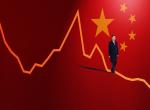Who wants to give up power anyway? History of the long serving leaders abdicating before the time is ripe has rare entries even if the writing on the wall was rather clear. In last decade it has happened to several North African leaders as a consequence of the Arab Spring or initiated by the Jasmine Revolution of Tunisia. Second Arab Spring has been in the wings for a while and has taken its toll in countries like Algeria, Sudan and Lebanon and simmering elsewhere. It is not their longevity but continued inability to acknowledge and address the real plight and aspirations of the people that defines the fate of leader eventually.
In many a cases especially in Eurasia the leaders tend to ignore the root causes of the displayed public discontent as mere fancy of the ill-informed or handiwork of their traditional or new rivals rather than admitting their own systemic faults and failures. Often, they begin to believe in the White lies that their own machinery spreads. But precisely this ostrich like attitude is what takes them out. No one is impervious to popular dissent and despair irrespective of the kind of repressive regimes totalitarianism tends to perpetuate. A time to go comes in time but those who can read the warning signs early on and redress the grievances or even appear to do that could avert the disaster.
First time I heard of Belarus when at the age of 10, I rode on a Byelorussian - majestic tractor and accidentally started it at the farm. Second time was last year when I visited Minsk. Belarus is a beautiful country governed for nearly 26 years by President Lukashenko. Earlier this month (August 9), he held the elections and as expected under the current system has been declared a winner with over 80% votes by the Election Commission which have been termed as rigged by the fledgling opposition who claimed to have won the election given overt popular support. Normally, it should have not provoked a violent response from the people had they been satisfied with the performance of the Government especially its handling of economy and the deadly virus in his Trumpian style. As such the economy is not doing well and likely to decline by 4-5% which combined with impact of the virus and oil dispute with Russia and proposed uniform gas taxation under the Eurasian Economic Union (EAEU) arrangements will further contract the opportunities for the people. Consequently, greater frustration and popular discontent will ensue.
Covid-19 has been the biggest disruptor in this century. After the demise of the Soviet Union so called regional satraps took over the reigns and mostly ran the countries as if they were still not moved out of the time machine. You don’t govern in a vacuum. You have to have faith of a majority of the people. Mere systems can’t keep the leaders well ensconced for ever. Poorer countries suffer the brunt of dissatisfaction much more especially when they become part of a geo-political competition.
As such Belarus did not have any significant political opposition or their sponsors in local oligarchs and rich elites who could have provided enough staying power against the mighty Lukashenko who is said to be the “Last Dictator” and was looking for his sixth re-election. He got it whatever be the opposition and obviously refuses to part with his victory having allegedly garnered over 80% votes. Ambassador Valery Tsepkalo and the Banker Viktor Babariko- perhaps formed a proforma opposition but were said to be hailing from the establishment. Over time they became the leading contenders and were generating interest among the people as they propagated liberal changes in the economy and limitation of the Presidential terms to two. Even if genuine, their capacities were limited until the security and elites have a vertical split and support them.
The election was likely to be a drab affair but for the arrest made of a challenger in video blogger Sergei Tikhanovsky whose wife Svetlana Tikhanovskaya eventually had to contest and became quite popular. Although the earlier surveys indicated a positive outcome for her, but the allegedly rigged elections brought the people on streets against Lukashenko with a campaign “Stop the Cockroach”. Even one protester has died. But fearing for her life the Presidential hopeful after filing her official protest left the country to Vilnius with her children. Although she lamented the stealing of the elections yet again “I believe my own eyes. The majority was with us. We do not recognise the elections” that gave her a mere 9.9%, she appealed to her supporters not to confront the security establishment for their own safety. One is not sure if that was with the connivance of Russians or the Minsk deep state. The protests continue but most observers feel they have much lesser chances of success unless Russia or the West intervene. Meanwhile as Reuters reported “Lukashenko has compared the protesters to criminal gangs and dangerous revolutionaries with shadowy foreign backers. State media showed detained young men with their hands behind their backs, calling them “Russian provocateurs”.
Mercurial Lukashenko has begun to engage with Europe and US much to the chagrin of the Russians with whom they have a Union of sorts and special politico-economic arrangements. Secretary Pompeo visited Minsk in February implying support to Lukashenko which may have peeved the Kremlin. Having seen the erratic developments in Ukraine and the Velvet revolutions both the West and Putin may not like to see the rocking of Lukashenko’s ship as yet even though he has tried to project his own brand of independent thinking irking both sides on several occasions. He recently had 33 Wagner Group (said to be Russia backed private militia) personnel arrested in Minsk accusing them of indulging in undesirable activities. Their presence in Minsk, circumstances and unreliable explanations and accusations from both sides and the timing of it all make it more suspicious.
Lukashenko accused Russian interference and puppeteers of fomenting trouble for him after arresting the Banker candidate Babariko who was accused of money laundering and being supported by the likes of Gazprom and Russian oligarchs. Although it attests to the trust deficit Lukashenko knows that Russia’s backing is also crucial for his survival. Even though all opposition candidates also vouched for special relationship with Russia betting on an unknown quantity and their eventual play out is unpredictable. Hence Russians would not like a repeat of Ukraine or Georgia given the current trust deficit with the US and their allies.
The EU and the West would like to see Mink veer more closely towards them but any overt push or intervention would invite more than equal response since Putin would not allow his last strategic bastion to succumb to the western integration and outreach.
What happens to the demonstrations! Some would argue that these are more like low key anti-Putin protests in Russia which go on but do not impact a great deal on the incumbent. But Putin still possesses mythical charisma and sufficient popular support while other leaders in the region do need his understanding and implicit or explicit trust. In Belarus one could see more protests and more repression and arrests because this is how an apparently well entrenched autocratic regime reacts. Minsk remains the centre of activity with 1/5th of the country’s population mostly youth and their frustrations can’t be wished away. Whether the demonstrations and protests will succeed or not they would leave Lukashenko wondering whether he can continue to navigate in the politically turbulent waters with the same rudders. He may have to pay more attention to the root causes of the public discontent and address them before it’s too late. Which way Belarus (White Russia) takes will be carefully watched both by its East and West.
(The paper is the author’s individual scholastic articulation. The author certifies that the article/paper is original in content, unpublished and it has not been submitted for publication/web upload elsewhere, and that the facts and figures quoted are duly referenced, as needed, and are believed to be correct). (The paper does not necessarily represent the organisational stance... More >>
Image Source: https://www.dw.com/image/54589824_101.jpg











Post new comment